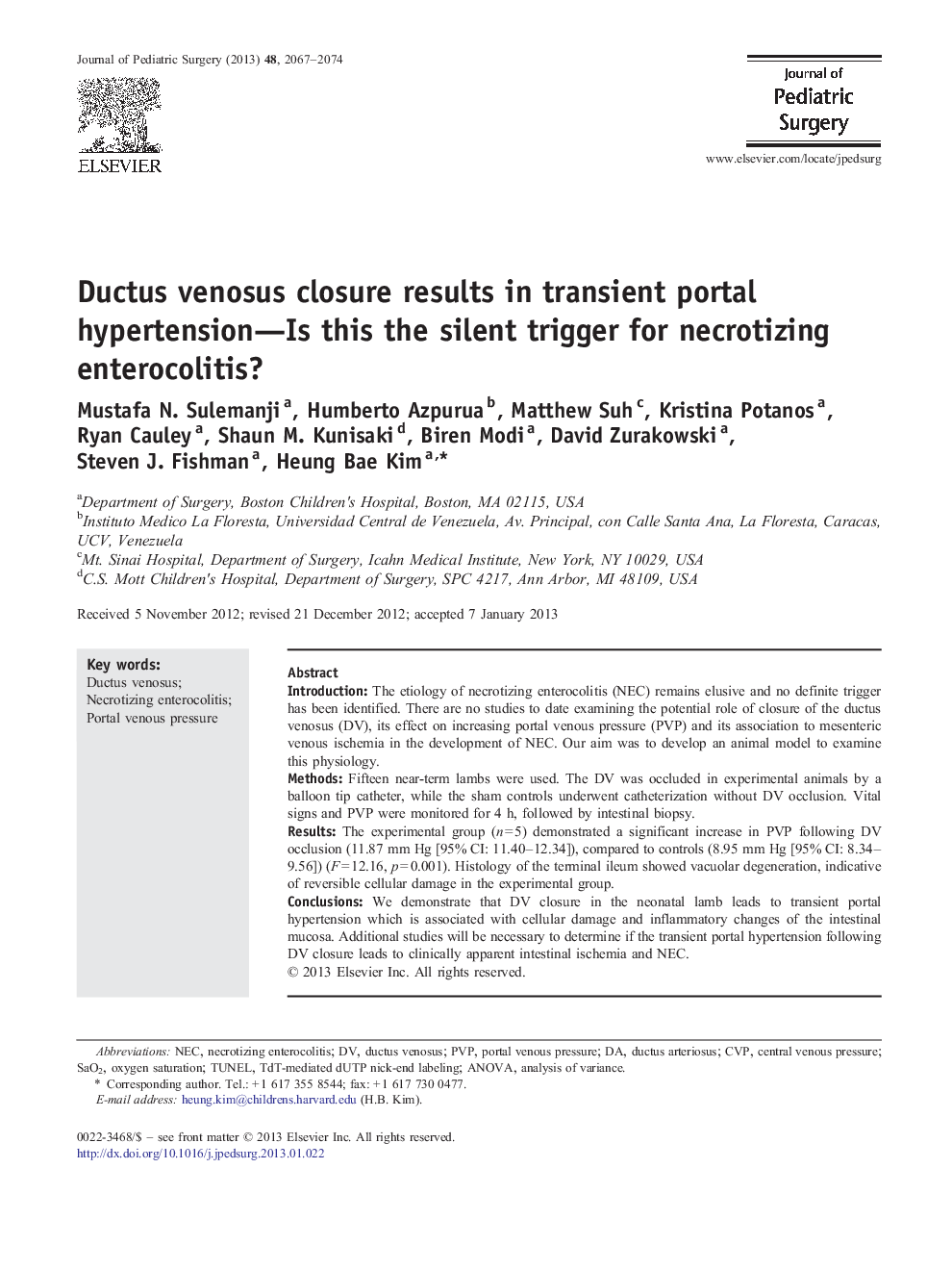| Article ID | Journal | Published Year | Pages | File Type |
|---|---|---|---|---|
| 6217186 | Journal of Pediatric Surgery | 2013 | 8 Pages |
IntroductionThe etiology of necrotizing enterocolitis (NEC) remains elusive and no definite trigger has been identified. There are no studies to date examining the potential role of closure of the ductus venosus (DV), its effect on increasing portal venous pressure (PVP) and its association to mesenteric venous ischemia in the development of NEC. Our aim was to develop an animal model to examine this physiology.MethodsFifteen near-term lambs were used. The DV was occluded in experimental animals by a balloon tip catheter, while the sham controls underwent catheterization without DV occlusion. Vital signs and PVP were monitored for 4 h, followed by intestinal biopsy.ResultsThe experimental group (n = 5) demonstrated a significant increase in PVP following DV occlusion (11.87 mm Hg [95% CI: 11.40-12.34]), compared to controls (8.95 mm Hg [95% CI: 8.34-9.56]) (F = 12.16, p = 0.001). Histology of the terminal ileum showed vacuolar degeneration, indicative of reversible cellular damage in the experimental group.ConclusionsWe demonstrate that DV closure in the neonatal lamb leads to transient portal hypertension which is associated with cellular damage and inflammatory changes of the intestinal mucosa. Additional studies will be necessary to determine if the transient portal hypertension following DV closure leads to clinically apparent intestinal ischemia and NEC.
